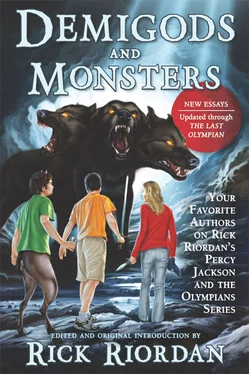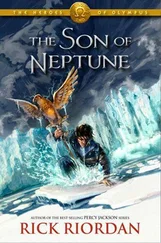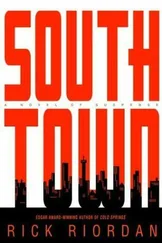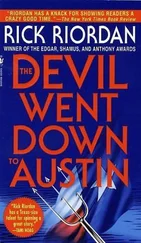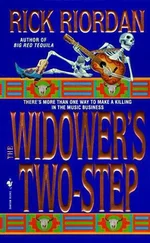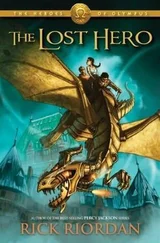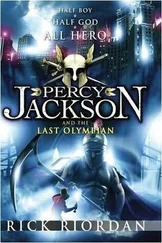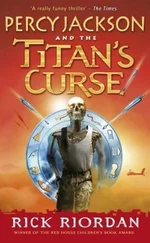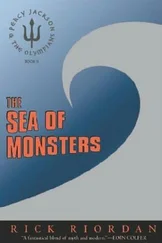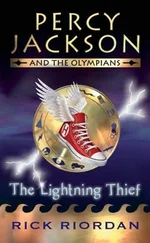Very soon he will have to go it alone, but right now he is still not seeing clearly and wholly. His relationships with others suffer. He makes enemies easily. And he does not complete crucial lessons, trying to leapfrog ahead in an impatience to prove himself—a trait that reveals to the discerning reader how unready he still is, despite the fact that he can now talk the talk and walk the walk.
Stage 3: The central crisis
Suddenly, everything goes south. The hero is plunged into despair and hopelessness, made worse by his former bravado and high hopes; he experiences a brush with death, symbolic or otherwise (E.T. “dies”; Frodo lapses into a deathlike stupor; Cedric Diggory is murdered in front of Harry while he is symbolically crucified). This stage represents the danger of discovering (or starting to discover) one’s true identity: As I said earlier, becoming oneself is always seen as a crime against the masses, an act of rebellion against the establishment.
And “punishment” quickly follows.
Percy is plunged into the middle of a war between petulant gods and must set out on an almost suicidal quest for which he is far from ready. He encounters several symbolic deaths and has close shaves with real ones, as in the deadly confrontation with the Mother of Monsters, Echidna.
Here, Riordan carefully crafts the psychological development of his young protagonist: The only way to survive is for Percy to have faith in himself, or rather in the “new self” or identity that he has so recently discovered. This sudden realization that he really does have some innate power, that he really is a demigod after all, significantly occurs in a very high place, the Gateway Arch—from where he can see in all directions.
Stage 4: Independence and the final ordeal
The hero survives the central crisis, having faced “death” and emerged from it changed. This is the final test through which his transformation into his new self takes place, though this new self will still have to be tested in a climactic confrontation with the darkest figure in the story.
In all the recent stages, Percy has been discovering the importance of seeing clearly. This not only involves gaining a better understanding of what drives his two companions but also penetrating the disguises of the monsters. As each new threat unfolds, he sees through the assumed identity of the monster more swiftly than before. He is growing up.
And that, of course, makes him an even bigger threat.
Percy is now very much on his own. Like Aladdin after his princess has been kidnapped, like Harry in the cemetery, Percy must stand on his own two feet and become the master of his own powers. To do this, he must “see” himself clearly, not just others, and know his own strengths and weaknesses.
Stage 5: Final union, completion, and fulfillment
In a series, you don’t get to this final stage till the last book (unless the “completion” is to be dramatically overturned at the start of the next one). Not only can each book in a series follow the Rags to Riches plotline, but so can the series as a whole. In this sense, Harry Potter and the Goblet of Fire represents the central crisis of the series, which is why Harry is separated from everyone else in the maze and has a very real brush with death: his own and Cedric’s (not to mention the “ghosts” of his parents and the location in a graveyard).
At this stage in The Lightning Thief , Percy has become more fully himself and is now seeing even more clearly. He has rebelled against the restrictions and the limiting labels that have been placed upon him, and he is ready to assume more responsibility for his own actions in the world.
But that doesn’t mean everyone is happy with him.
After all, he’s done what the gods could not: resolved a dangerous conflict by seeing through trickery, deceit, and false disguises. He has, in other words, rocked the boat.
Rite of Passage
So what we have here, in Riordan’s The Lightning Thief , is the journey of a rebel, a journey toward consciousness and awareness, a journey of someone who dares to become himself and fulfill his destiny.
But, as we saw earlier, this process of acquiring consciousness, of seeing clearly, is dangerous, since it is a challenge to the established order and the powers that be. Yet everyone goes through it. And in doing so, they commit the oldest “crime” there is: trying to be an individual.
Perhaps this is the oldest of battles: the battle between the generations, reflected in the first Greek myths that tell how the Olympians threw down the older gods, the Titans, then warred with humanity, their “children,” trying to keep them in darkness—a darkness that the greatest rebel of them all, Prometheus, liberated them from by stealing fire from Mount Olympus and giving it to humankind (for which he was barbarically punished by Zeus).
Just like the gods, parents—often with the best intentions—instinctively try to keep their children from growing up, because increasing awareness is always a challenge to them, a slap in the face, a rejection.
But all children grow up. Because all children are rebels, like Percy Jackson.
They are born with the seed of rebellion in them, as Booker makes clear when he notes that the young heroes and heroines of the Rags to Riches plotline are very different at the end of the story from how they began:
What has happened to them is that they have at last revealed or developed what was potentially in them all the time. They have matured. They have grown up. They have fully realised everything that was in them to become. In the best and highest sense, they have become themselves.
* * *
Paul Collins’ many books for young people include series such as The Jelindel Chronicles, The Earthborn Wars, The Quentaris Chronicles, and The World of Grrym in collaboration with Danny Willis. His latest series is The Maximus Black Files. He is also the author of over 150 short stories. Paul has been the recipient of the A. Bertram Chandler, Aurealis, William Atheling Jr., and Peter McNamara Awards and has been shortlisted for many others.
He is currently the publisher at Ford Street Publishing and runs the speakers’ agency Creative Net. Visit him at www.paulcollins.com.au.
Would You Want to Be One of Artemis’ Hunters?
Carolyn MacCullough
It’s a tempting offer: Follow me, and you will live forever. But as Carolyn MacCullough explains, becoming a Hunter of Artemis is a mixed blessing. Before you decide to take that oath, you’d better read what she has to say.
If given the option of eternal youth, my guess is that nine out of ten women would take it. After all, Oil of Olay, Revlon, and Lancôme, among others, have spent millions of dollars in ad campaigns trying to convince us that we can purchase it in just one small bottle. As a society, we practically fetishize youth, craving that unlined skin and endless exuberance and effervescent energy that just seems to ooze from the pores of the very young. Most women strive to preserve youth in even the smallest of ways, no matter how many times we steel ourselves to the idea of aging gracefully.
So what if someone made you an offer you thought you couldn’t refuse? An offer that seemed too good to be true (as most offers like this are)? What if Artemis herself, Greek goddess extraordinaire (also known as Diana if you happen to be Roman), mistress of the hunt, goddess of the moon, defender of all things wild and free, came down from the pearly heights of Mount Olympus and made you a proposition?
First of all, only females may apply (sorry, guys!). So ladies, the offer on the table is that Artemis will grant you eternal youth. Yes, eternal youth: something that people have quested for across the centuries. No need to fear the onslaught of wrinkles or the first strands of gray hair or a general diminishment of vigor and vim (two things that seem truly essential for a productive life even if most of us can’t exactly define “vim” on the spot). You’ll never fall victim to arthritis or memory loss or any of those other aspects of growing old that range from the merely annoying to the downright debilitating.
Читать дальше
